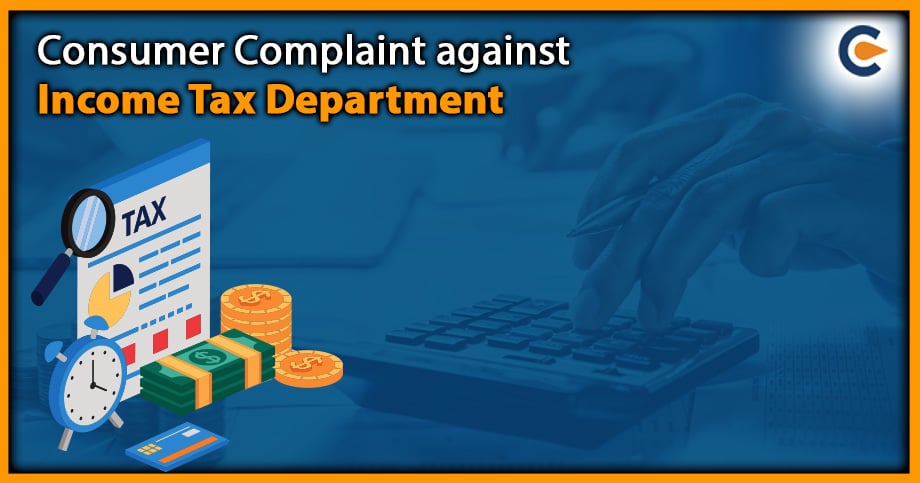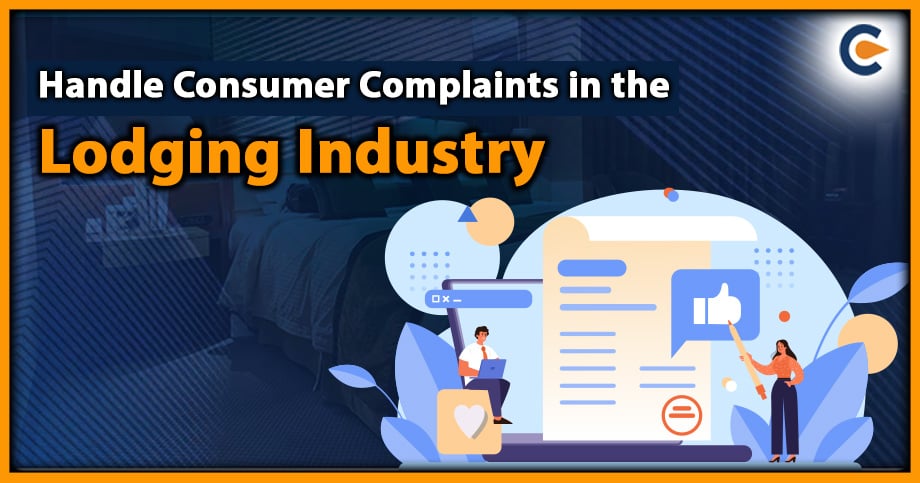A consumer complaint against the Income Tax Department can arise when a taxpayer feels that their rights have been violated or that they have been treated unfairly. Complaints can range from incorrect tax assessments, delayed refunds, or harassment by Income Tax officials. To address such complaints, the Income Tax Department has established Grievance Redressal Officers and an Ombudsman to investigate and resolve issues raised by taxpayers. Taxpayers are also advised to seek legal advice if their complaint is not resolved through official channels. It is important to keep all documentation and evidence related to the complaint to provide support for their case. In this blog, we will discuss the process of filing a consumer complaint against the department and the various avenues available to taxpayers.
What Is A Consumer Complaint?
A consumer complaint is a formal expression of dissatisfaction raised by a customer or user of a product or service against the company or individual providing that product or service. It could be related to issues like the quality of the product or service, delivery delays, hidden charges, or any other violation of consumer rights.
Consumer complaints are an essential part of consumer protection laws, which aim to safeguard the interests of consumers and ensure that they are not exploited or cheated by sellers or service providers. Consumers have the right to voice their grievances and seek redressal for any unfair or unethical practices that they may have encountered during their transactions.
In many countries, there are consumer protection agencies and organizations that provide a platform for consumers to file complaints and seek redressal. Consumers can also approach consumer courts or forums, which are specialized bodies set up to adjudicate consumer disputes and provide relief to consumers in the form of compensation or other remedies.
Why File A Consumer Complaint Against The Income Tax Department?
Several reasons can lead a taxpayer to file a complaint against the Income Tax Department. Here are some of the most common reasons:
- Delay in Processing of Tax Returns or Refunds: The Income Tax Department has a stipulated timeline to process tax returns and refunds. However, in some cases, the department fails to process returns or refunds within the specified time frame, leading to dissatisfaction among taxpayers.
- Incorrect Tax Calculation or Demand Notice: The Income Tax Department may sometimes calculate taxes incorrectly, leading to an incorrect demand notice issued to the taxpayer. This may lead to unnecessary financial burden and legal issues for the taxpayer.
- Harassment or Improper Conduct by Income Tax Officials: Taxpayers may sometimes face harassment or improper conduct from Income Tax officials during the assessment or scrutiny process.
- Non-Compliance with the Provisions of the Income Tax Act: The Income Tax Department is required to comply with the provisions of the Income Tax Act while assessing or scrutinizing tax returns. Any non-compliance by the department can lead to a complaint by the taxpayer.
Steps to File a Consumer Complaint against the Income Tax Department
If you have any grievances against the Income Tax department, you can file a complaint with the appropriate authorities. Here are the steps that you can follow to file a complaint:
Step 1: Identify the Appropriate Authority
The first step in filing a complaint against the Income Tax department is to identify the appropriate authority to which the complaint can be addressed. Depending on the nature of the complaint, you may need to file your complaint with one of the following authorities:
Grievance Redressal Cell of the Income Tax Department: The Department has a grievance redressal cell that handles complaints related to various issues faced by taxpayers. This cell can be contacted for complaints related to delays in the processing of tax returns or refunds, incorrect tax calculation, or any other issues related to the assessment or scrutiny process.
Centralized Public Grievance Redress and Monitoring System (CPGRAMS): CPGRAMS[1] is an online portal where complaints can be registered for various government departments, including the Department. This portal can be used for complaints related to delays in the processing of tax returns or refunds or any other issues faced by taxpayers.
Consumer Forum: In cases where the Department fails to redress grievances, the taxpayer can approach the appropriate consumer forum for redressal.
Step 2: Draft the Complaint
Once you have identified the appropriate authority, the next step is to draft the complaint. The complaint should clearly state the nature of the grievance, the relief sought, and any supporting evidence or documents. It is important to ensure that the complaint is concise, clear, and to the point.
Step 3: Submit the Complaint
After drafting the complaint, the next step is to submit it to the appropriate authority. Depending on the authority, the complaint can be submitted online or offline. It is important to ensure that the complaint is submitted within the prescribed time limit and that all necessary details are provided.
Step 4: Follow-Up
After submitting the complaint, it is important to follow up with the appropriate authority to ensure that the complaint is being addressed. This can be done by regularly checking the status of the complaint and providing any additional information or documents as required.
Legal Remedies Available to Taxpayers
If the grievance is not redressed by the Income Tax Department, the taxpayer can pursue legal remedies. Here are some of the legal remedies available to taxpayers:
- Writ Petition: A writ petition can be filed in the High Court or the Supreme Court challenging the decision of the department. If a taxpayer believes that their fundamental rights have been violated by the department, they can file a writ petition with the High Court or the Supreme Court. The writ petition is an extraordinary remedy available to taxpayers, and it can be filed if there is no other adequate remedy available.
- Ombudsman: The department has an Ombudsman scheme in place to address complaints from taxpayers. The Ombudsman is an independent authority that investigates complaints against the department and passes recommendations for resolution. However, the Ombudsman’s recommendations are not binding on the department.
- Appeal: The taxpayer can file an appeal before the Commissioner of Income Tax (Appeals) against an order of the department.
- Revision Petition: A revision petition can be filed before the Principal Commissioner of Income Tax (Revision) challenging an order of the department. If a taxpayer is dissatisfied with the order or decision passed by the High Court, they can file a revision petition with the Supreme Court within 90 days of the receipt of the High Court’s order or decision. The Supreme Court will conduct a hearing and pass a final order or decision.
- Dispute Resolution Panel: The taxpayer can approach the Dispute Resolution Panel (DRP) if the dispute relates to transfer pricing or international taxation.
Conclusion
Filing a consumer complaint against the Income Tax Department can be a challenging task. However, it is important to take these steps in case of any grievances or issues that you may have with the department. By following the steps mentioned above and pursuing legal remedies, taxpayers can ensure that their grievances are redressed in a timely and effective manner.
Read Our Article:Handling Consumer Complaints In Media Industry











